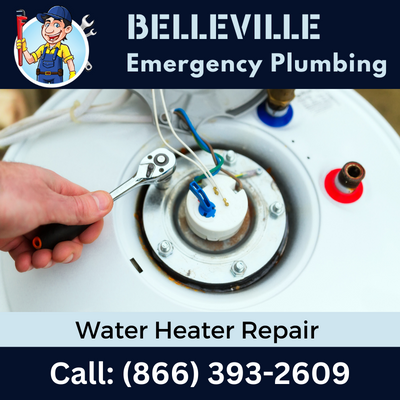Common Plumbing Mistakes Belleville Homeowners Make
Published at:8/28/2023 by in 'Emergency Plumbing' Category
Common Plumbing Mistakes Belleville Homeowners Make
When it comes to plumbing, homeowners in Belleville often make a few common mistakes that can lead to costly repairs. One of the most frequent errors is using chemical drain cleaners excessively. While these products may provide a quick fix for clogged drains, they can also cause damage to your pipes over time. The harsh chemicals in these cleaners can corrode and weaken the pipe material, leading to leaks or even burst pipes. It's best to use natural alternatives or call a professional plumber when dealing with persistent clogs.
Another mistake homeowners tend to make is ignoring small leaks or drips. Even if it seems like just a minor inconvenience, those tiny drops of water can add up quickly and result in wasted water and higher utility bills. Additionally, leaving leaks unattended for too long can lead to more severe damage such as mold growth or structural issues caused by water seepage. It's crucial for Belleville homeowners to address any leak promptly by either fixing it themselves (if capable) or contacting a licensed plumber before the problem escalates further.
Common Plumbing Mistakes Belleville Homeowners Make
Plumbing issues can be a headache for homeowners, and sometimes the mistakes we make only exacerbate the problem. Whether it's attempting a DIY fix or neglecting routine maintenance, these common plumbing mistakes can lead to costly repairs and unnecessary stress. In this blog post, we'll discuss some of the most frequent plumbing errors Belleville homeowners make and provide tips on how to avoid them.
Failing to Fix Leaky Faucets
A leaky faucet may seem like a minor annoyance, but it can waste gallons of water over time and increase your utility bills significantly. Many homeowners tend to ignore this issue or postpone fixing it due to busy schedules or lack of plumbing knowledge.
To avoid this mistake:
- Identify the type of faucet you have (compression, cartridge, ball, or ceramic disc) so you know what replacement parts are needed.
- Gather the necessary tools before starting: adjustable wrenches, screwdrivers, pliers.
- Turn off the water supply before disassembling the faucet.
- Clean all components thoroughly and replace any worn-out parts.
- Tighten everything properly during reassembly but be careful not to overtighten as it may cause damage.
Using Chemical Drain Cleaners
Clogged drains are another common plumbing issue that many homeowners face. While chemical drain cleaners might seem like an easy solution at first glance, they often do more harm than good in the long run. These harsh chemicals can corrode pipes over time and pose health risks if mishandled.
To safely unclog your drains:
- Start by using a plunger to create suction and dislodge the clog.
- If that doesn't work, try using a drain snake or auger to break up the blockage.
- Consider making your own natural drain cleaner by mixing baking soda and vinegar. Pour it down the drain and let it sit for an hour before flushing with hot water.
- If all else fails, call a professional plumber who can safely remove the clog without causing further damage.
Ignoring Small Leaks
A small leak may not seem like a big deal at first, but even minor leaks can cause significant damage over time. Ignoring them can lead to mold growth, weakened structural integrity, and increased water bills. It's essential to address any signs of leakage promptly.
To prevent this mistake:
- Regularly inspect your plumbing fixtures for any signs of leaks (dripping sounds, wet spots, or musty odors).
- Tighten loose connections with a wrench or call a plumber if needed.
- If you notice leaking pipes, use pipe tape as a temporary fix until you can replace or repair them properly.
Overtightening Connections
When attempting DIY plumbing repairs or installations, homeowners often make the mistake of overtightening connections. While it's crucial to ensure everything is secure and watertight, excessive force can lead to damaged fittings or cracked pipes in some cases.
To avoid this error:
- Familiarize yourself with proper torque specifications for different types of fittings (e.g., plastic vs. metal).Use two wrenches when connecting pipes: one to hold the fitting steady and another to tighten the connection.
- Hand-tighten connections first, then give them a quarter turn with a wrench for a secure fit. Avoid excessive force.
Neglecting Regular Plumbing Maintenance
Many homeowners tend to overlook routine plumbing maintenance until an issue arises. However, preventive measures can go a long way in avoiding costly repairs and extending the lifespan of your plumbing system.
To stay on top of regular maintenance:
- Schedule annual professional inspections to identify any potential problems early on.
- Regularly clean faucet aerators and showerheads to remove mineral deposits that can affect water flow.
- Flush your water heater annually to prevent sediment buildup and improve its efficiency.Avoid pouring grease or oil down the drain as they can solidify and cause clogs over time.
- If you notice any changes in water pressure or unusual noises, don't hesitate to call a plumber for further investigation.
Conclusion
Avoiding these common plumbing mistakes can save Belleville homeowners from unnecessary stress, expenses, and inconvenience. Remember always to address leaks promptly, avoid using chemical drain cleaners when possible, perform regular maintenance tasks, use proper torque when connecting pipes, and seek professional help when needed. By taking proactive steps towards maintaining your plumbing system properly, you'll ensure it functions smoothly for years to come!